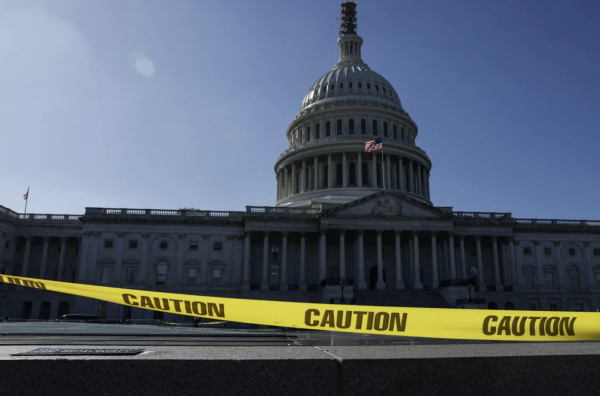Reparations may not be the solution we’ve been looking for
As the 2020 election intensifies, many Democratic candidates are embracing the idea of slavery reparations, that is, providing financial compensation to descendants of slaves. According to a recent Young Democrats poll, left-leaning students at Westminster overwhelmingly support reparations at a rate of six to one. Even as someone who considers themselves liberal, I am genuinely surprised by this level of support for an unjust and infeasible proposal.
The idea of financial payouts from the US government to descendants of slaves today is morally unjustifiable. Yes, slavery was one of the greatest atrocities in American history. Yes, slavery’s victims were not properly compensated. And yes, there is still great racial inequality in our country today. But, in spite of these truths, the very notion of reparations implies that in today’s society, the US government, and by extension US taxpayers, owe a great debt to the descendants of slaves from 150 years ago.
Why should I, an Asian American whose family moved to the US 25 years ago, be held responsible for a white slave owner’s actions? If in 1860, 75 percent of whites did not own slaves, the percent of Americans today who have absolutely no blame for the victims of slavery must be much higher than that number (PBS). Why should this vast majority of Americans pay for the actions of slave owners from five generations ago? And for those Americans who are descendants of slave owners, are they suddenly responsible for what their ancestors did? Reparations are not at all similar to other distant uses of our taxpayer dollars, such as infrastructure or healthcare or housing investments that benefit the country as a whole. Reparations are not of this nature–they are purely compensatory, simply a payment meant to redress wrongdoings of one group on another.
The time for reparations was after the Civil War when the slaves themselves could have been compensated. Reparations paid by the German government to Holocaust survivors came into place after World War II and the US government paid reparations to Japanese Americans who were held in internment camps. These examples compensate individuals who were actually hurt, not the descendants of them who came 5 generations later. It’s a shame that Sherman’s proposal to provide former slaves with “40 acres and a mule” was shut down; it would have perfectly fit this model of fair and justified reparations.
Asserting that the color of one’s skin is the basis for just compensation is called racial entitlement. Reparations seeking to address injustices with more injustices violate the very principle of equality that the idea of reparations itself is based on. Aside from the moral issues of reparations, they are also impossible to implement and massively unpopular. First comes the cost. Although desirable at the time, Sherman’s plan would cost 2.6 trillion dollars today out of our 4.7 trillion budget (Duke University). Other proposals are not inexpensive either, ranging from several hundred million to upwards of 500 billion. Rational people should agree that this massive amount of money would be better spent on the dozens of more pressing issues of our country than on reparations that would likely increase the racial divide.
Secondly, the question of who would qualify is impossible to definitively answer. Who is considered a descendant of a slave? Do white descendants of slaves count? What about black descendants of slave owners? Would the 1.8 million bi-racial people who identified as black and white pay reparations or receive them? (Census) What about people who can’t afford a genealogy test? Would rich African Americans receive reparations too? No one can answer these pressing questions without angering a significant portion of the potentially eligible, or of the supporters of the measure.
Thirdly, allowing reparations for slavery leads to a dangerous slippery slope for the US’s other wrongdoings. If we pay reparations to African Americans, are Native Americans entitled to a broader reparations program? What about Mexicans who have also faced racism? Do I get reparations simply because I happen to be Chinese and the US discriminated against Chinese immigration and Chinese railroad workers in the distant past? Maybe we need to schedule a National Day of Apology and be like Australia (just kidding).
Lastly, reparations for slavery are massively unpopular, which would lead to immense backlash and racial division among the public. 67% of Americans and 81% of white Americans don’t support slavery reparations. Even Democrats are split with 49% for and 47% against reparations (Gallup 2019). Not only would such a measure fail to even become law, but the mere debate of it may spark massive protests and outrage from the public.
Many Democratic candidates have embraced reparations to pander towards African American voters, but doing so only contributes to the right’s characterization of Democrats as far-left and socialist and drives a wedge within the party. Reparations intend to atone for the sin of slavery by attempting to remove racial inequality and disadvantage today, but in reality, reparations will widen the racial divide by further polarizing our country. Instead, politicians should focus on social programs in areas such as healthcare, housing, employment, that address inequality not by blaming slavery but by directly helping all underprivileged Americans.




